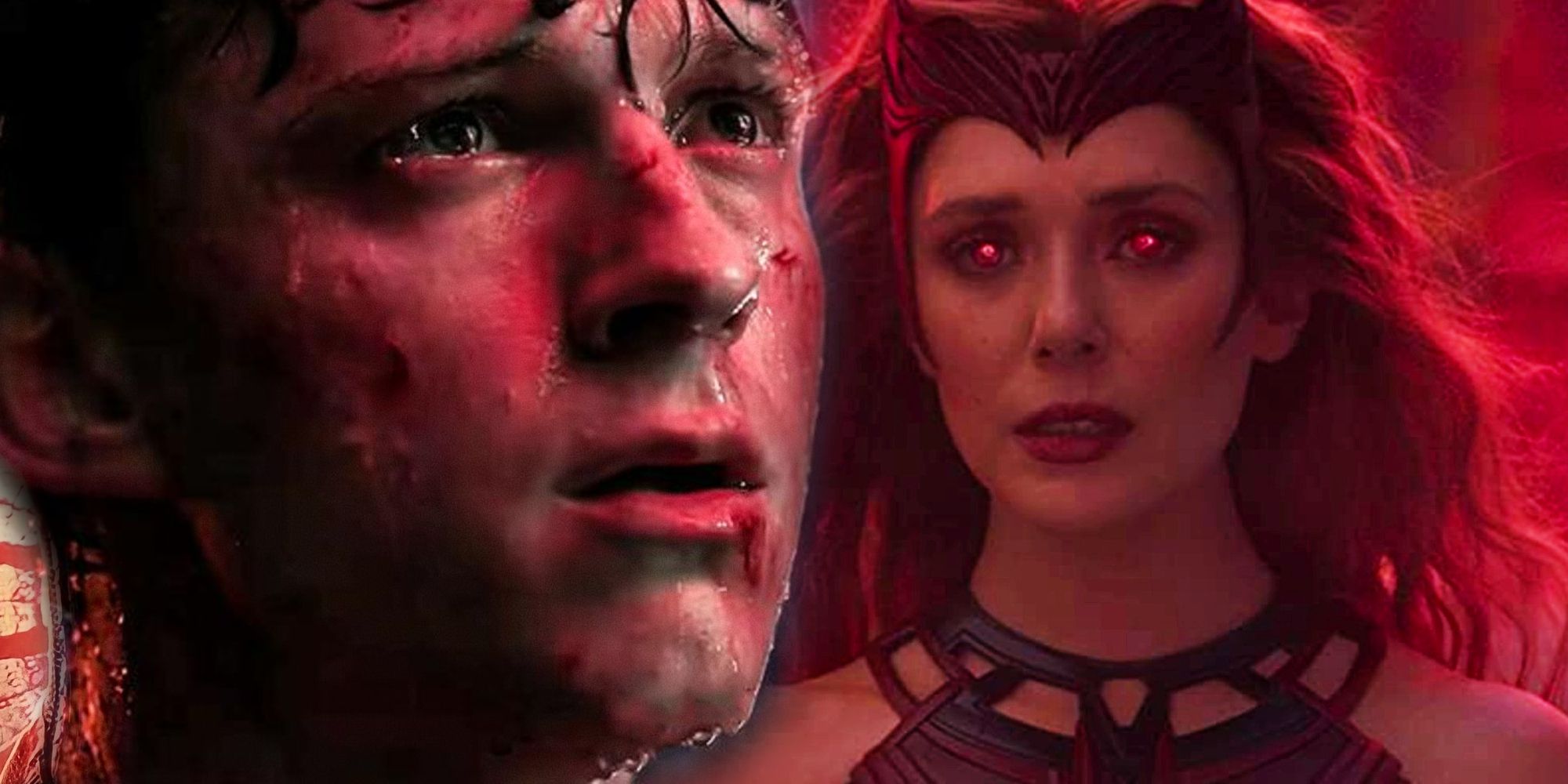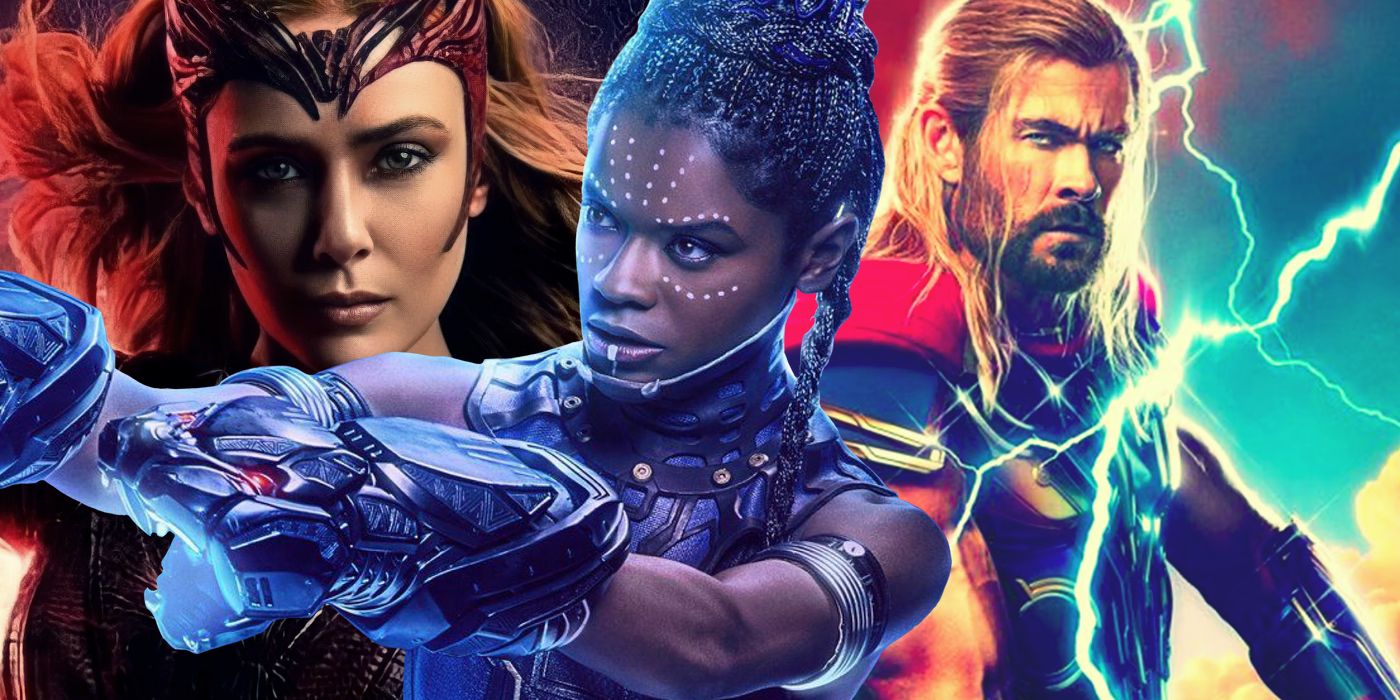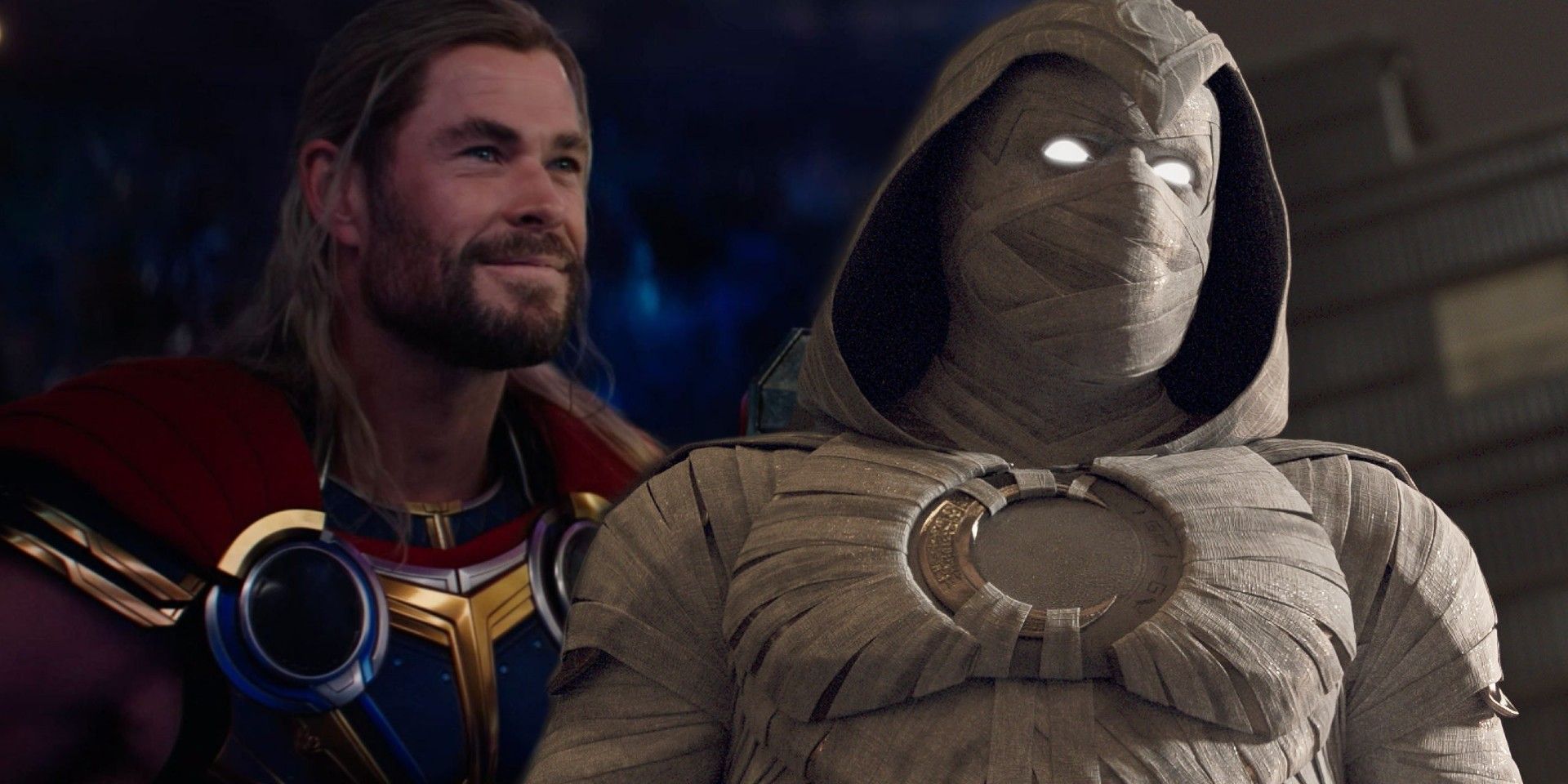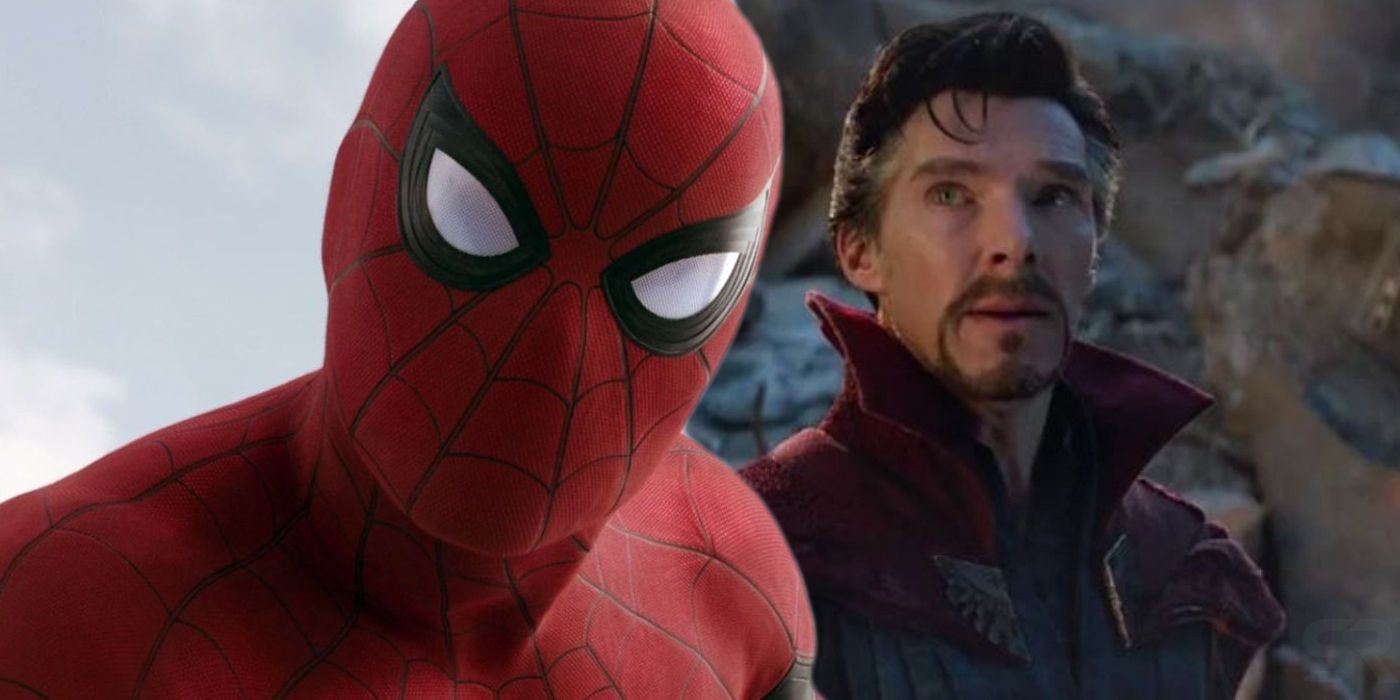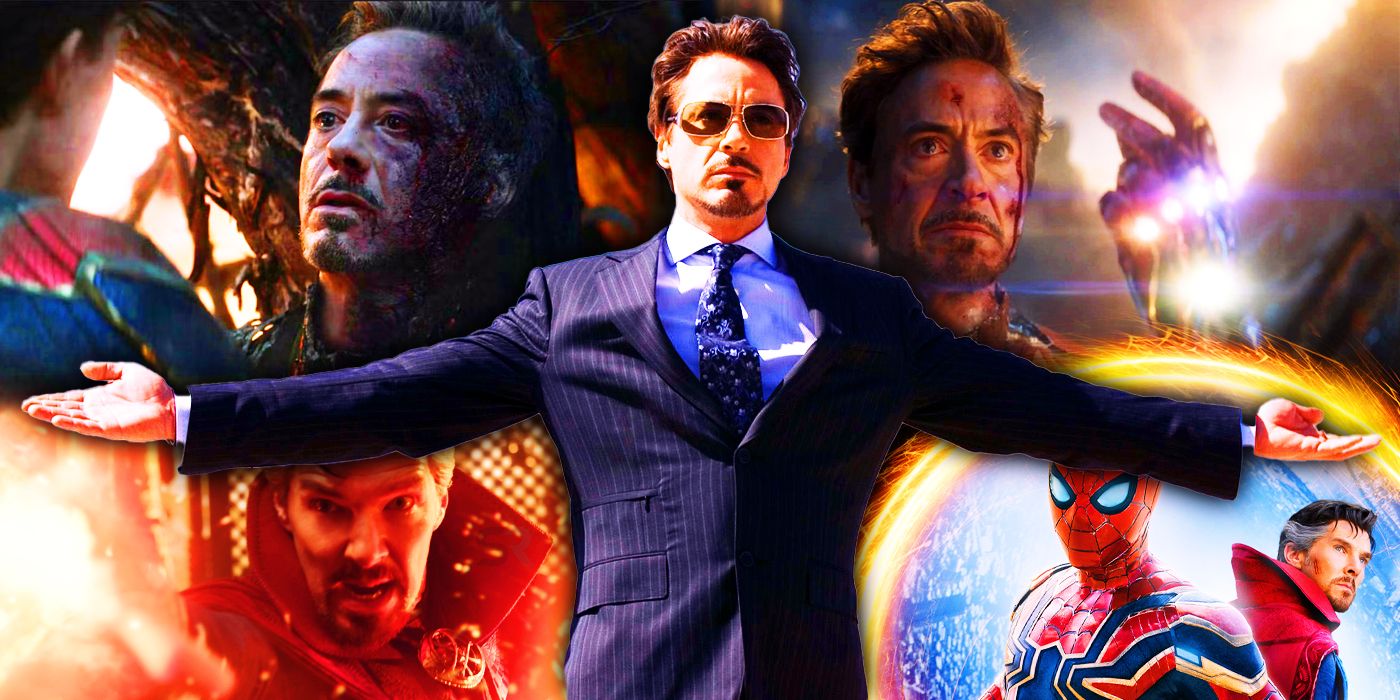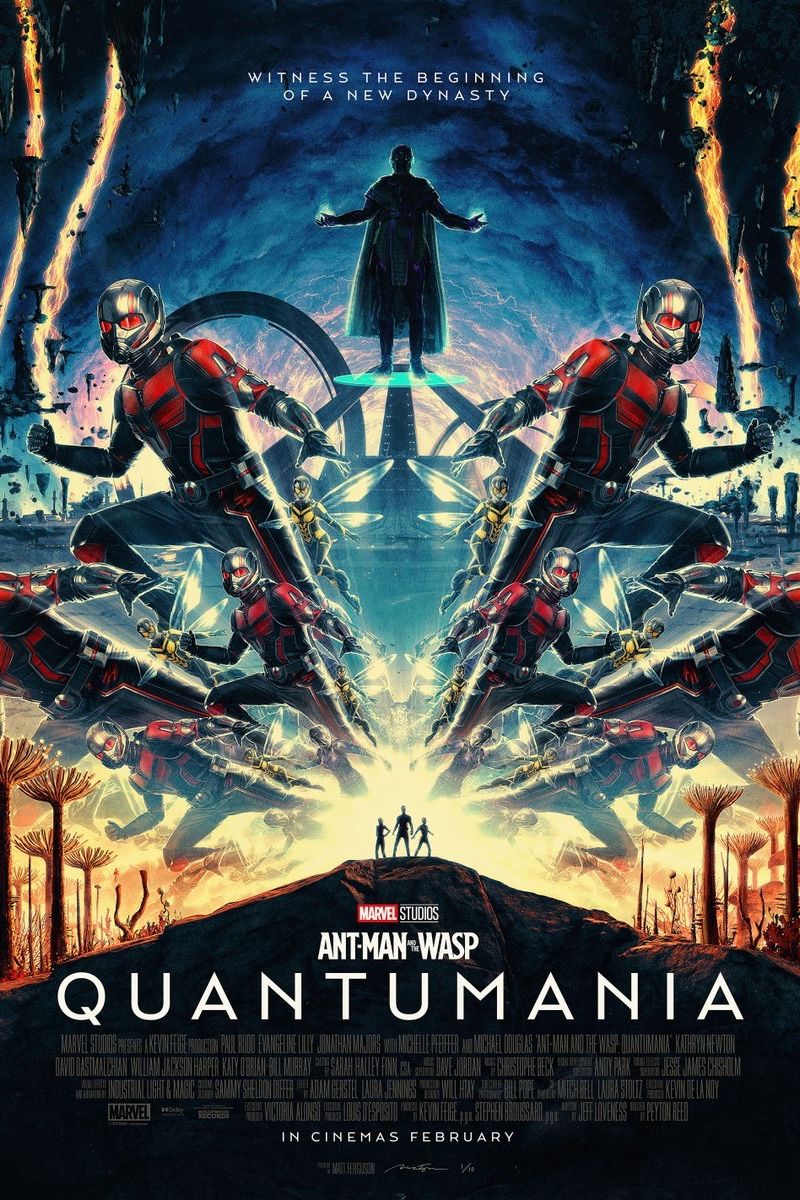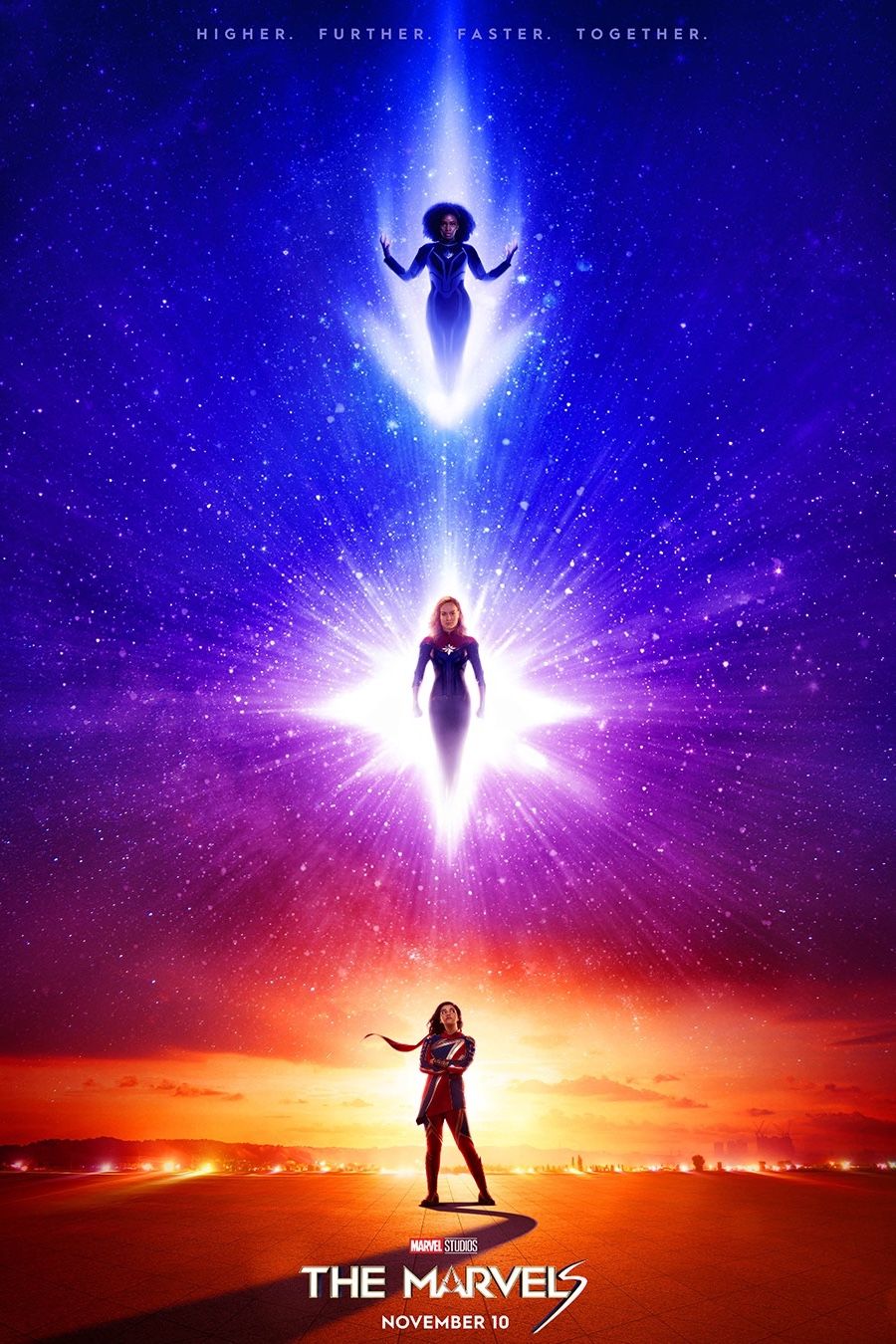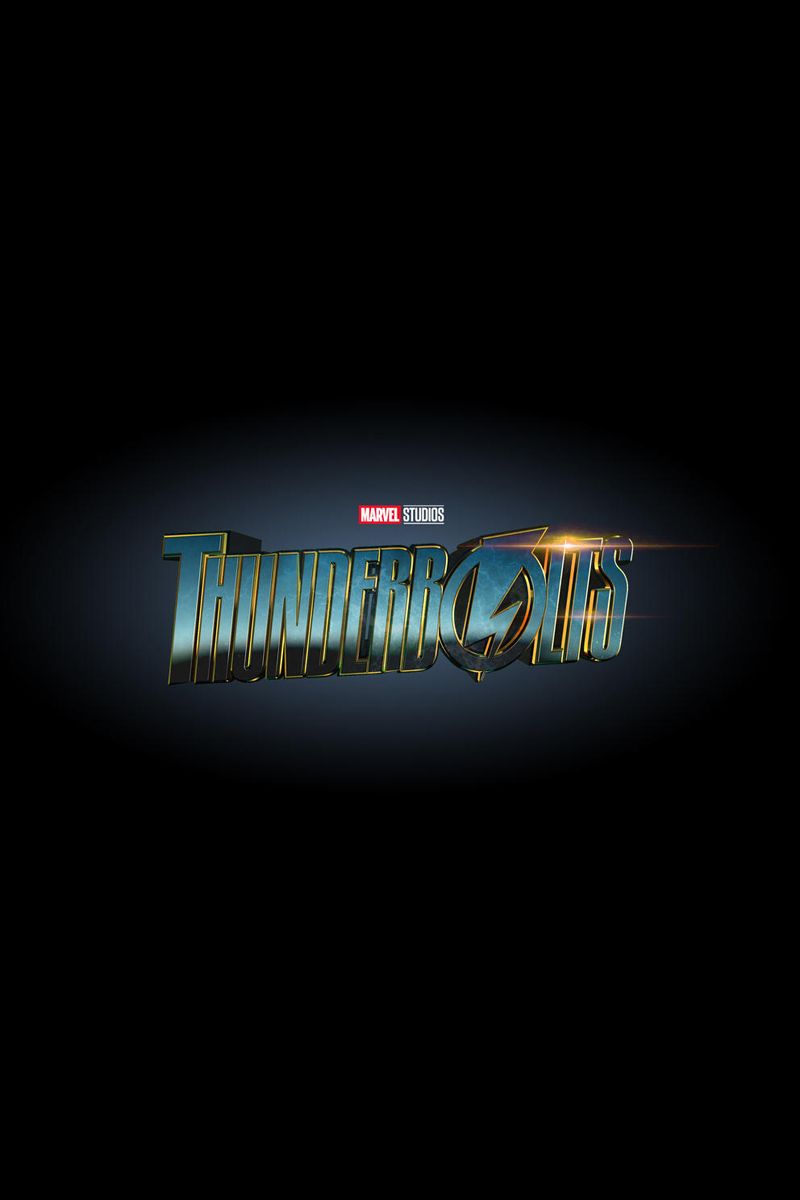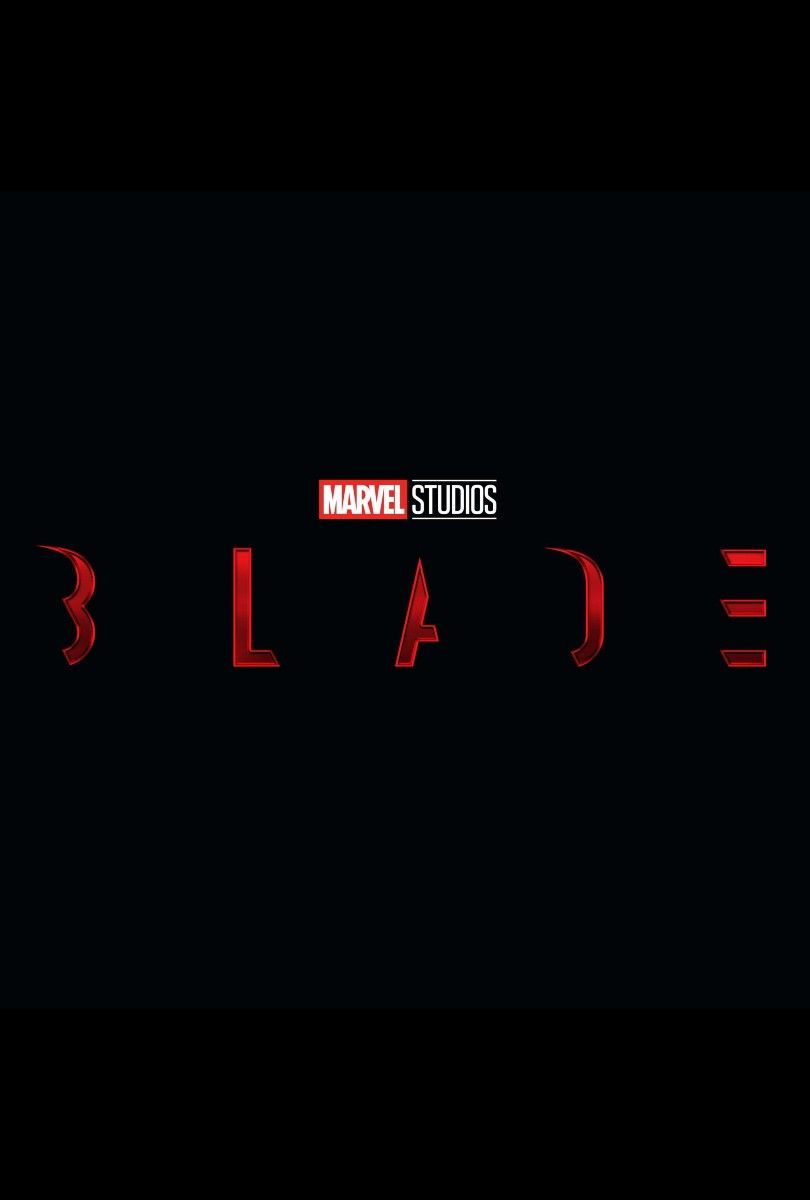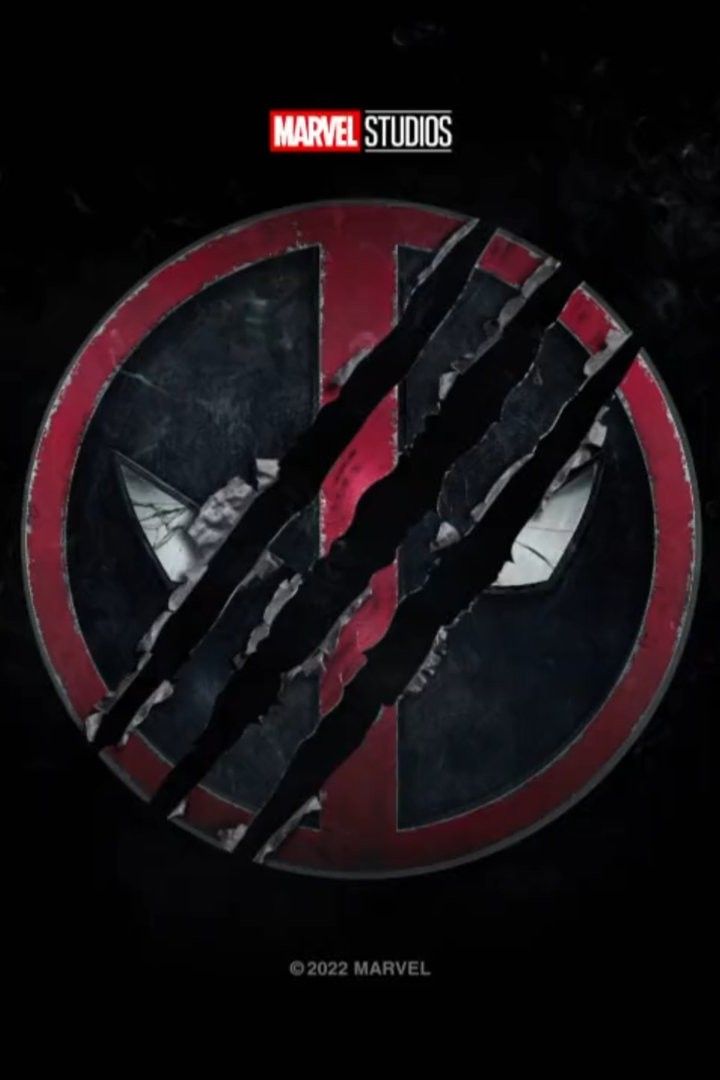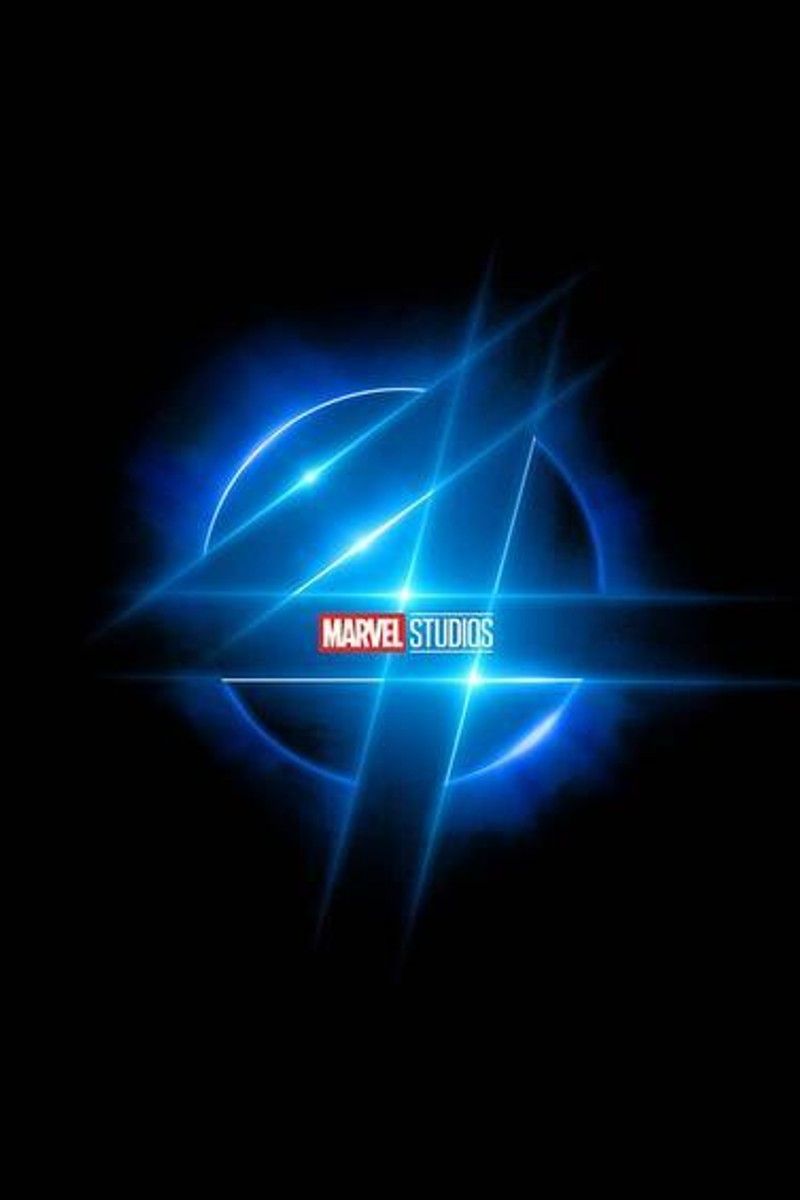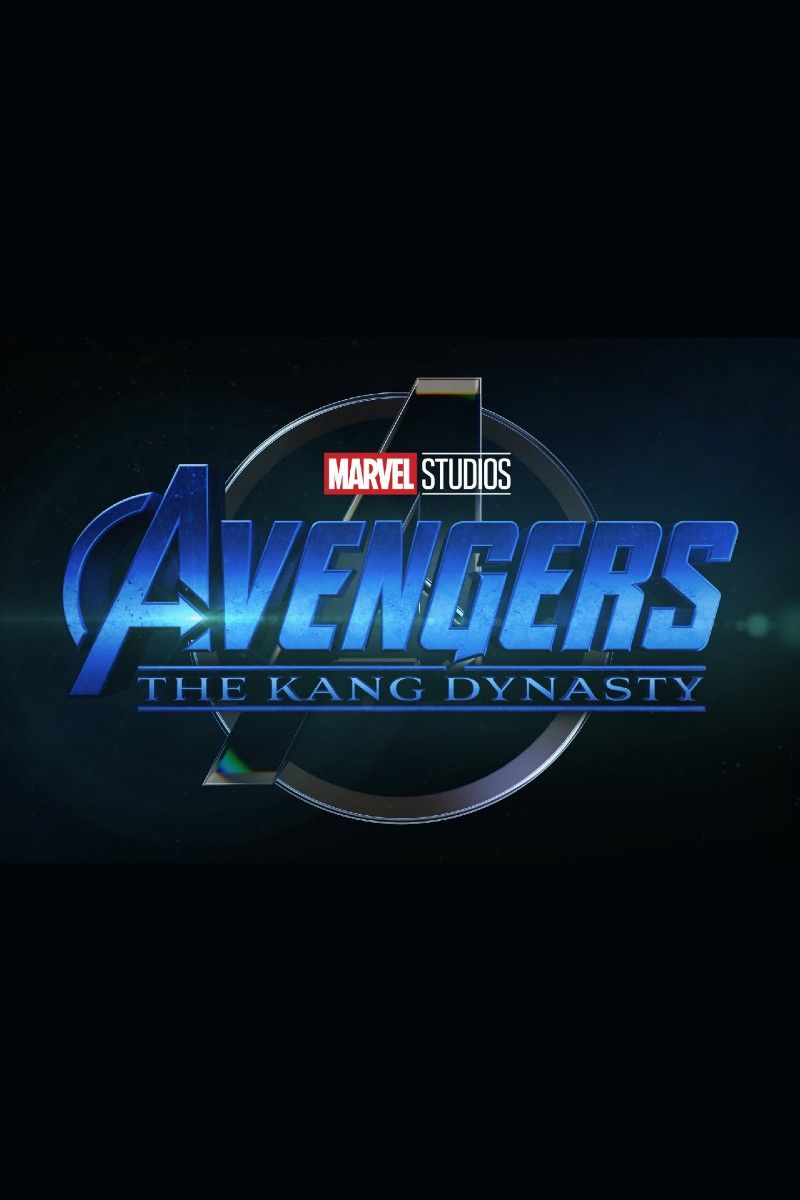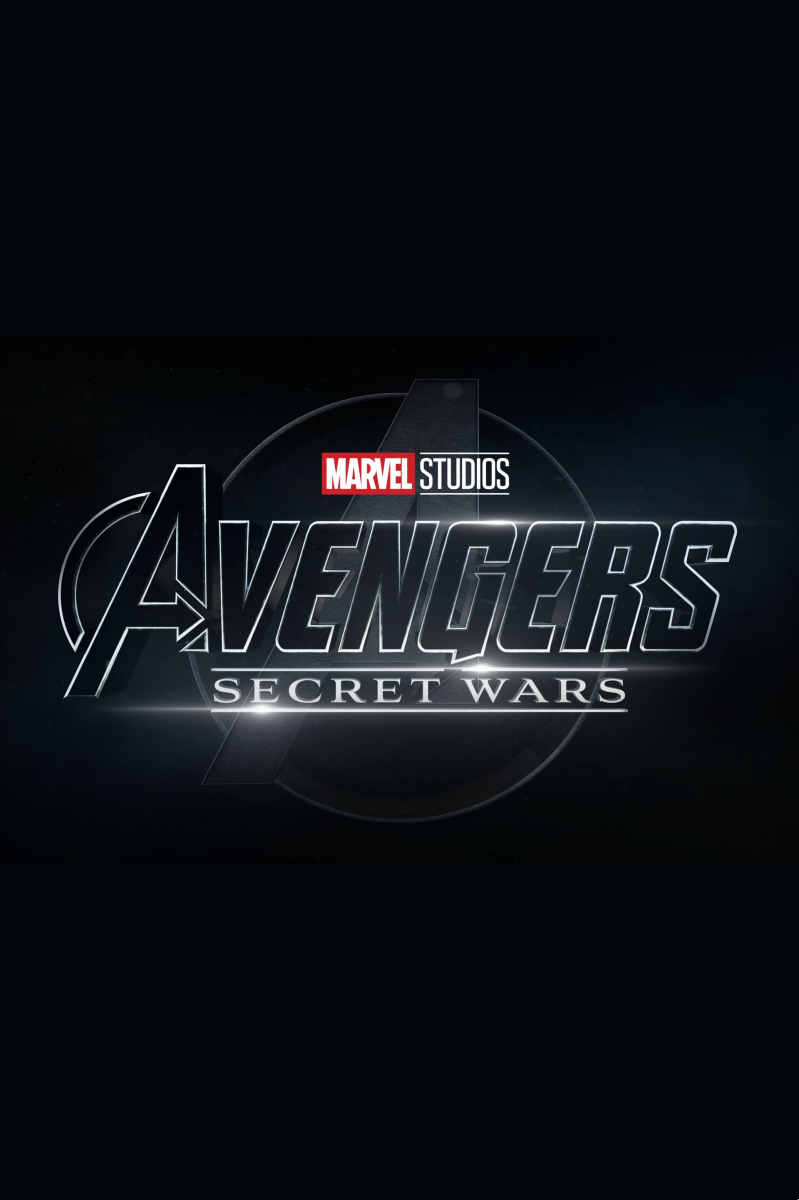The Marvel Cinematic Universe's Phase 4 may not be the most celebrated installment of the hit superhero franchise, but its deeper meanings and character explorations are far beyond anything the series has done before. In the aftermath of Avengers: Endgame, the MCU has hit a franchise reset, replacing the Infinity Saga with what has now been dubbed the Multiverse Saga, which will culminate in the two-part finale event, Avengers: The Kang Dynasty and Avengers: Secret Wars. With the first phase of the Multiverse Saga now officially over, audiences can look back on the last two years to see the deeper themes that have run through the MCU's Phase 4.
There have been many who claimed that there was something wrong with Phase 4 of the MCU, especially in comparison to the first three phrases of the franchise. Reaction to the onslaught of films and series that comprise Phase 4 has been decidedly mixed, with certain titles, like Spider-Man: No Way Home and Ms. Marvel, setting all-time highs on Rotten Tomatoes while others like Eternals and Thor: Love and Thunder set all-time lows. After beginning with the Disney+ series WandaVision, Phase 4 came to an end with last year's The Guardians of the Galaxy Holiday Special, finally allowing audiences to assess the Multiverse Saga's first installment in its entirety.
Phase 4 Explored Grief Over Loss With Scarlet Witch, Shuri & More
Many recent critics of the MCU overlook how Phase 4 improved Infinity War and Endgame by dealing with its characters' grief over their losses during the Infinity Saga. The most noticeable of these is Wanda Maximoff, the Scarlet Witch, who explored the depths of her grief in WandaVision. The series saw Wanda experience new depths of pain as she struggled to cope with the loss of Vision, with its theme coming down to the exploration of grief's manifestations. While some may take issue with Wanda's arc in Doctor Strange in the Multiverse of Madness, it is difficult not to see where she is coming from after losing so much.
More recently, the MCU dealt with the complicated legacy of T'Challa in Black Panther: Wakanda Forever after Chadwick Boseman's death in 2020. The film's opening scene followed Shuri on the night her brother died, then proceeded to track her journey as she mourned his passing. Audiences got to experience Shuri's rage, pain, and need for revenge in real time, especially after her mother was also taken from her. Her storyline, which is the film's most poignant element, asks its viewers to contemplate what they themselves would do if faced with such tremendous loss while also providing enough moments of genuine self-actualization to give Shuri a chance at a bright future.
Grief has become a recurring theme even in Phase 4 titles outside the Multiverse Saga's narrative. Shang-Chi and the Legend of the Ten Rings saw Xu Wenwu, Shang-Chi's father, pushed to his limit in order to bring back his deceased wife, Ying Li. Likewise, Hawkeye included emotionally resonant arcs for Clint Barton and Yelena Belova in mourning Natasha Romanoff's death during the events of Avengers: Endgame. Even Thor: Love and Thunder, one of Phase 4's worst-received films, included surprisingly genuine moments of emotion as Thor used his own lessons in grief to counteract the pain that Gorr the God Butcher felt over the death of his daughter, Love.
Moreover, as the first hero in the MCU, Tony Stark's death in Endgame defined Phase 4, giving the films and projects therein the precise themes they needed to set up the Multiverse Saga. Through Phase 4's projects, viewers are invited to mourn alongside Tony's loved ones, especially characters like Spider-Man, Happy Hogan, and James Rhodes. Tony's loss is the most significant moment in the MCU thus far, marking a turning point in the franchise. As a result of his passing, the MCU, its characters, and its fans will never, and should never, be the same. Marvel Studios has allowed its viewers to feel these emotions through its varied explorations of intense grief.
Phase 4 Explored Religious Beliefs In Love & Thunder, Moon Knight, & More
Although the overplayed silliness and grating comedy worked against Thor: Love and Thunder, the film still has an interesting point to make in addressing deeper issues present throughout Phase 4: personal religious beliefs. Gorr the God Butcher, the film's villain, suffers a crisis of faith, believing that the universe's gods are nothing but uncaring tyrants, Thor undergoes a similar internal struggle, contemplating the purpose of being a god in the first place. Thor and Gorr eventually come to see eye-to-eye, as the Avenger convinces his nemesis to choose love rather than hate as a reaction to being wronged. In a better film, this theme might have proven staggering to audiences.
2022's first Marvel Disney+ series Moon Knight explored the identities of Marc Spector, introducing one of the MCU's most complex heroes. Beneath its already gripping story exploring identity, Moon Knight includes an underlying theme regarding one's personal beliefs. Spector struggles to find his personal devotion, leaving behind his family's Jewish heritage after failing to see the power behind their beliefs. He joins with a deity whose power is tangible but quickly learns that he is malevolent and cruel. By the series' conclusion, Spector has made progress in deciphering his true identity but has yet to fully realign his system of beliefs, presenting an interesting storyline for Season 2 to follow.
Although Chloe Zhao's MCU debut in Eternals has been branded forgettable by some critics, its underlying message is perhaps one of the most complex in the history of the franchise. Its main characters struggle with their devotion to Arishem and the Celestials after discovering that a new Celestial's birth requires the deaths of billions. Some Eternals find their fidelity to the Celestials too strong to overcome while others refuse to cause harm to innocents in order for their own beliefs to prosper. Each character in the film has a distinct reason for choosing their side, and the bonds of friendship are tested as a result of their choices.
The exploration of religious beliefs goes hand-in-hand with the MCU's post-Endgame explorations of grief, as these two things are often closely associated in real life for obvious reasons. While the MCU's inoffensive approach to storytelling keeps its titles from making hard statements on the existence of an afterlife or any one preferred religion, its willingness to explore such topics, even at a surface level, allows its films to relate to viewers on a deeper plane. The MCU has always been, and should always be, a reflection of the world "right outside the window," which happens to be full of people who seek religious actualization in the wake of devastating loss.
Phase 4 Explored Self-Doubt & Sacrifice For Spider-Man & Doctor Strange
Spider-Man: No Way Home is easily one of the MCU's best Phase 4 films not only for uniting all three live-action Spider-Men onscreen but also for its emotionally resonant story surrounding the life of the young Peter Parker. This storyline carries over Peter's relentless self-doubt from Spider-Man: Far From Home and introduces the best way to prove his mettle as a hero: sacrifice. No Way Home's ending saw Peter choose to sacrifice his own memory, wiping every bit of knowledge regarding the existence of Peter Parker from the entire world. In so doing, Spider-Man did what he does best: sacrifice his own self-interest for the greater good.
Shortly after the events of No Way Home, Multiverse of Madness explores Doctor Strange's place in the Multiverse Saga and in the MCU as a whole. Known for his arrogant personality and need to always be in control, Strange slowly began to see during his trip through the Multiverse that it couldn't always come down to him. After taking strategic command over the Avengers during their fight with Thanos, Strange came to see that a healthy amount of self-doubt could detract from his arrogance, allowing others to "hold the knife" and potentially achieve better results. In coming to trust others more and himself less, Strange became an even better hero.
The concepts of self-doubt and sacrifice were also explored with the MCU's legacy heroes introduced in Phase 4. Each of these new heroes was forced to struggle with his or her own self-perception in the early days of their time in the MCU. For example, Kate Bishop, Jennifer Walters, and Sam Wilson went through rigorous development to measure up to their predecessor's legacy, eventually learning to carve their own way as a new kind of hero. This kind of story bodes very well for the Marvel Cinematic Universe, showing that the franchise is willing to move on to new characters without compromising the relatable nature of its iconic initial cast.
Phase 4 Was A Reactionary Phase (Because Of Endgame)
While certain viewers and critics have been quick to criticize Kevin Feige's plan for Phase 4, they fail to take into account the emotional importance of its place in the MCU. After the whirlwind that was the Infinity Saga, the MCU needs time to breathe as it sets up its next Saga. Therefore, allowing this time for new characters to take the spotlight while older established characters process the events of Endgame is nothing short of genius on Feige's part. Such an approach makes Endgame feel like the monumental event that it was, while also allowing Phase 5 to hit the ground running when it kicks off later this year.
Amidst the many varied sequels and spinoffs set up in the MCU's Phase 4, there is no denying the emotional resonance therein. Marvel's most iconic characters have each undergone specific journeys that have made them even stronger in the aftermath of the Infinity Saga. The Avengers may not be physically united, but they are assembled together in psychological actualization just in time to face Kang the Conqueror. The MCU's Phase 4 may not be the most beloved of the franchise, but it includes hard-hitting character work that deserves to be commended, both for setting up the Multiverse Saga and for crafting relatable stories of emotion and heroism.

